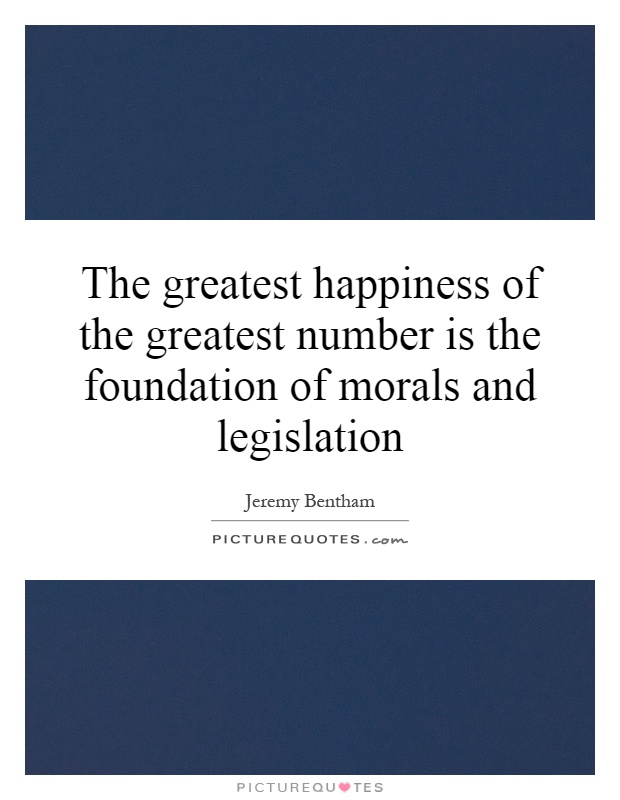The greatest happiness of the greatest number is the foundation of morals and legislation

The greatest happiness of the greatest number is the foundation of morals and legislation
Jeremy Bentham, an influential philosopher and social reformer, is often credited with the quote, "The greatest happiness of the greatest number is the foundation of morals and legislation." This principle, known as utilitarianism, is at the core of Bentham's ethical and political philosophy.Utilitarianism is a consequentialist theory that judges the morality of an action based on its consequences. According to Bentham, the ultimate goal of morality and legislation should be to maximize happiness and minimize suffering for the greatest number of people. This principle is based on the idea that happiness is the ultimate good and that all actions should be judged based on their ability to promote happiness.
Bentham believed that the key to creating a just and moral society was to prioritize the well-being of the majority over the interests of the few. He argued that laws and policies should be designed to promote the greatest happiness for the greatest number of people, even if it meant sacrificing the happiness of a minority. This utilitarian approach to ethics and legislation has had a profound impact on modern political thought and has influenced the development of many social policies.
One of the key strengths of Bentham's utilitarianism is its emphasis on the importance of considering the consequences of our actions. By focusing on the overall happiness of society, utilitarianism provides a clear and objective standard for evaluating the morality of different actions. This can help guide decision-making in a wide range of contexts, from personal ethics to public policy.
However, critics of utilitarianism argue that it can lead to the neglect of individual rights and liberties in favor of the greater good. They argue that the principle of the greatest happiness of the greatest number can justify actions that violate the rights of minorities or marginalized groups. Additionally, some critics argue that it is difficult to accurately measure and compare the happiness of different individuals, making it challenging to apply utilitarian principles in practice.
Overall, Jeremy Bentham's principle that the greatest happiness of the greatest number is the foundation of morals and legislation has had a lasting impact on ethical and political thought. While utilitarianism has its critics, its emphasis on promoting the well-being of society as a whole continues to shape debates on ethics and public policy.












 Friendship Quotes
Friendship Quotes Love Quotes
Love Quotes Life Quotes
Life Quotes Funny Quotes
Funny Quotes Motivational Quotes
Motivational Quotes Inspirational Quotes
Inspirational Quotes